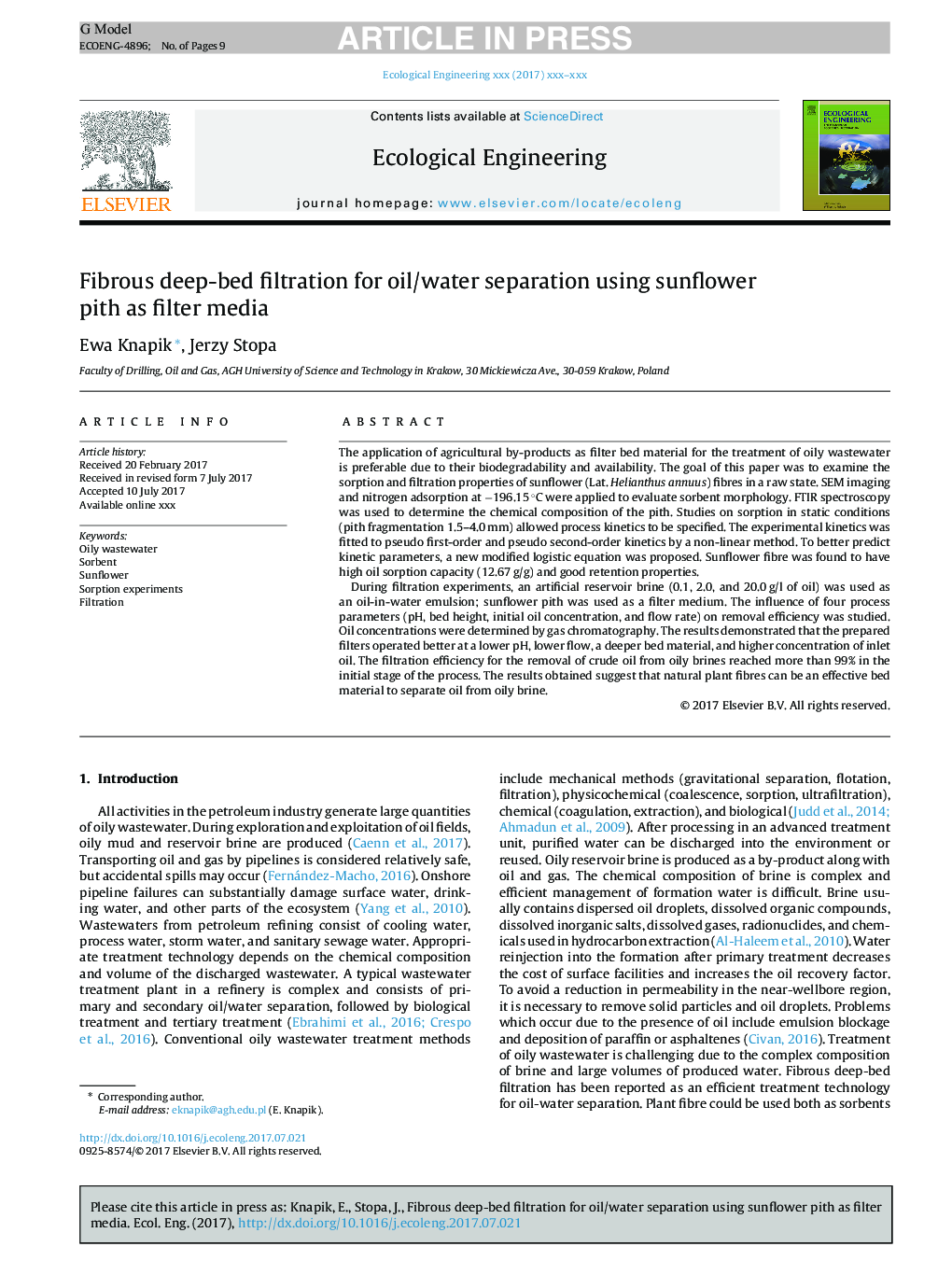| Article ID | Journal | Published Year | Pages | File Type |
|---|---|---|---|---|
| 10223353 | Ecological Engineering | 2018 | 9 Pages |
Abstract
During filtration experiments, an artificial reservoir brine (0.1, 2.0, and 20.0Â g/l of oil) was used as an oil-in-water emulsion; sunflower pith was used as a filter medium. The influence of four process parameters (pH, bed height, initial oil concentration, and flow rate) on removal efficiency was studied. Oil concentrations were determined by gas chromatography. The results demonstrated that the prepared filters operated better at a lower pH, lower flow, a deeper bed material, and higher concentration of inlet oil. The filtration efficiency for the removal of crude oil from oily brines reached more than 99% in the initial stage of the process. The results obtained suggest that natural plant fibres can be an effective bed material to separate oil from oily brine.
Related Topics
Life Sciences
Agricultural and Biological Sciences
Ecology, Evolution, Behavior and Systematics
Authors
Ewa Knapik, Jerzy Stopa,
